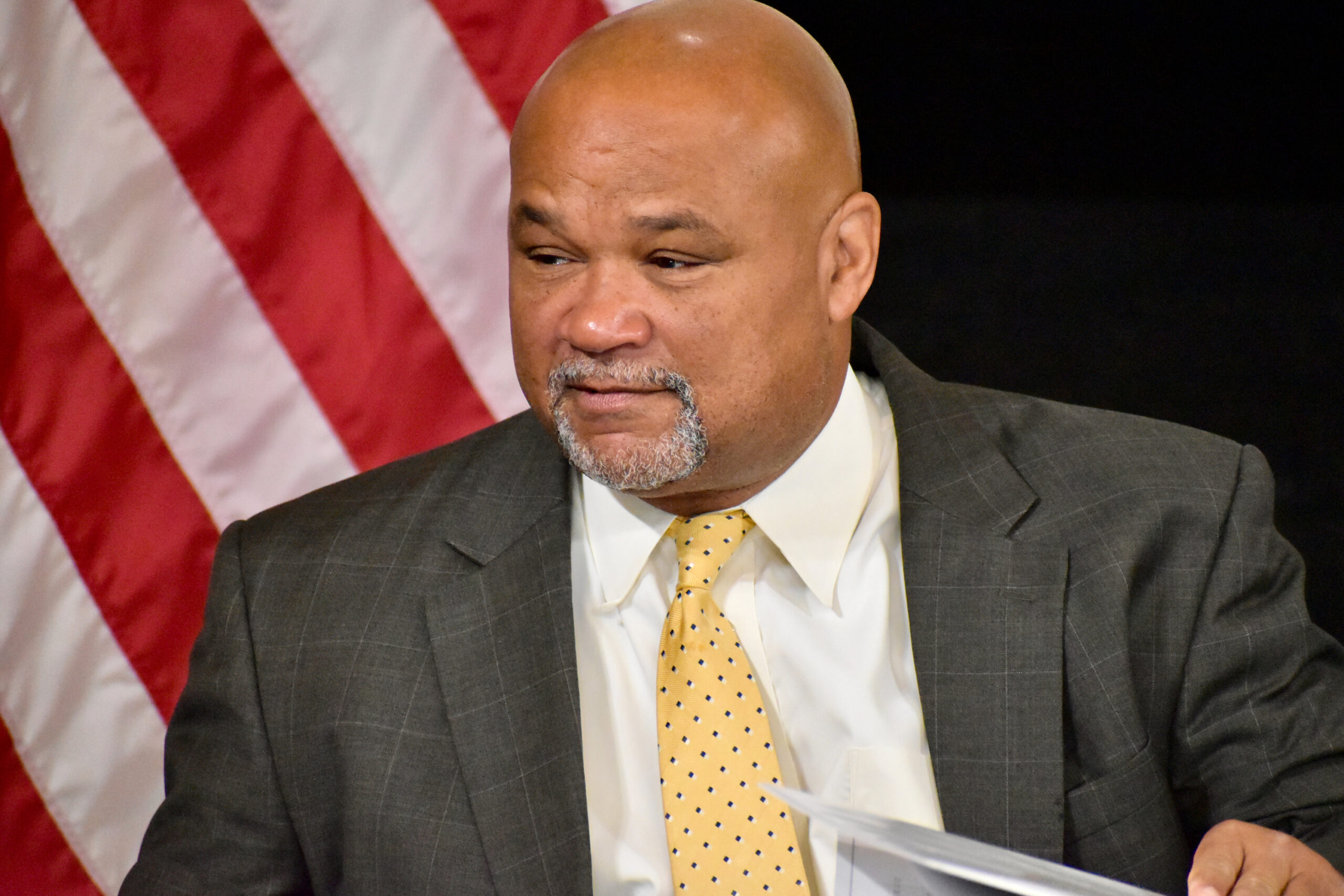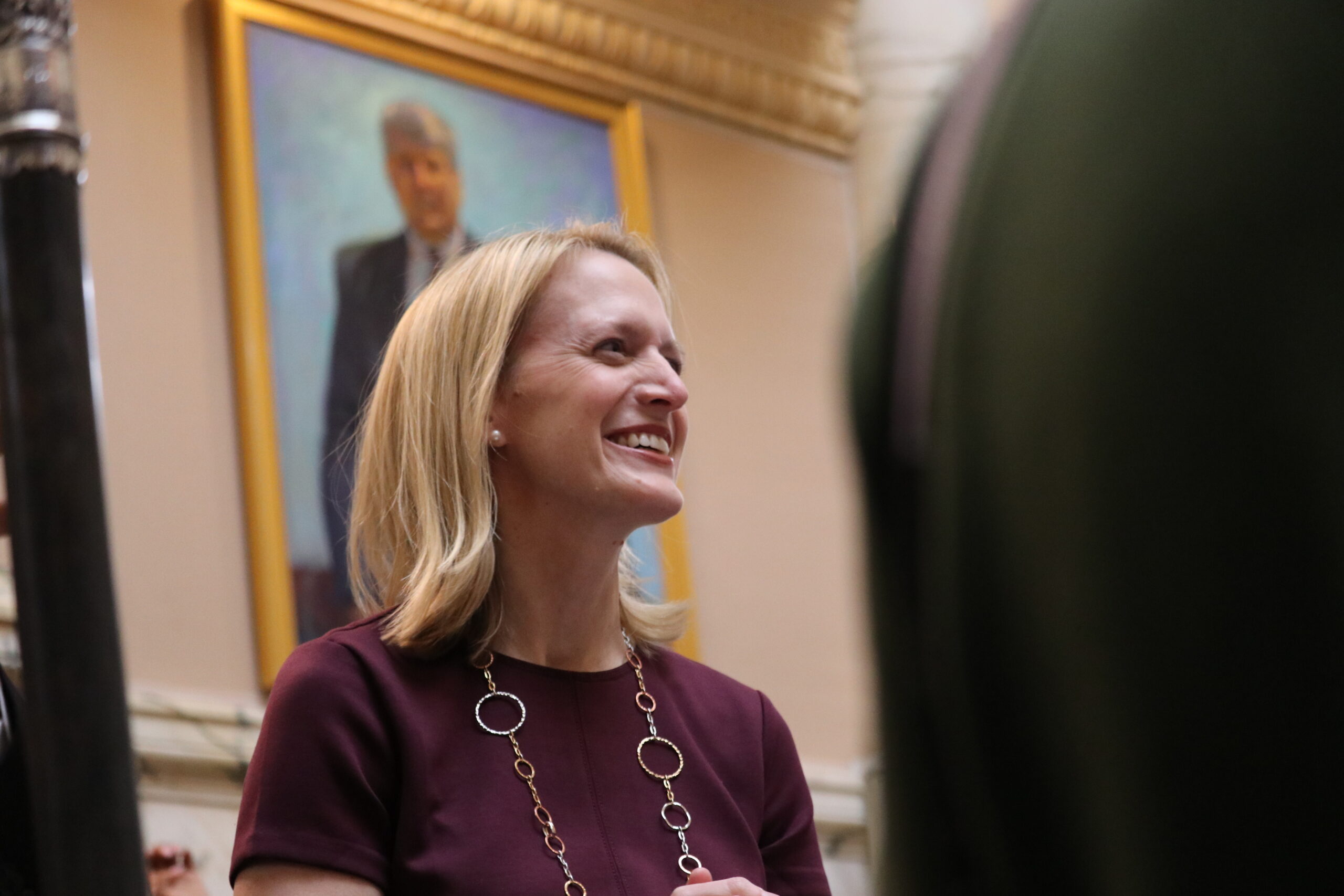Comptroller Convenes Panel to Review Distribution of Billions in Relief Funding
A workgroup convened by Comptroller Peter V.R. Franchot (D) to track pandemic spending met for the first time Thursday, setting the stage for a lengthy look into billions in state and federal relief funding.
Franchot said the workgroup is meant to “learn what could be done better” and provide oversight over how relief funding is spent.
The meeting kicked off with an overview of pandemic spending from both federal and state governments in Maryland from Deputy Budget Secretary Marc Nicole. He said state and federal governments have doled out more than $62 billion in pandemic spending in Maryland, including:
- $36.2 billion in federal direct payments to business and individuals. That includes $10.9 billion in economic impact payments, $10.6 billion in pandemic unemployment compensation, $10.1 billion in the Paycheck Protection Program and $4 billion in economic injury disaster loans.
- $23.8 billion in federal grant funding, or payments from the federal government to state and local governments. That includes many relief efforts, including $5 billion for state fiscal relief, $3.4 billion in local fiscal relief, $3.1 billion for K-12 education, $2.1 billion for transportation, and more.
- $1.4 billion in state tax relief, the vast majority of which comes from the RELIEF Act of 2021, which expanded the state’s Earned Income Tax Credit and waived taxes on state pandemic relief.
- $885 million in state grant funding, which includes roughly $306 million from the Recovery Now Fund, which was added to the RELIEF Act by the Maryland Senate. Nicole said state officials are still working to disburse that money, which includes targeted relief for businesses, workforce development and education. The $885 million in grants also includes various business assistance efforts undertaken by the state in 2020.
Nicole said the figures for total federal pandemic spending in Maryland are “fairly conservative,” and said a final tally of how much pandemic-related funding flowed into Maryland throughout the pandemic could exceed that $36 billion non-grant funding estimate. He said those estimates come from Federal Funds Information for the States, a service created by the National Governors Association and National Conference of State Legislatures to track the impact of federal budget and policy decisions on states.
Those initial figures on federal spending in Maryland during the pandemic come from a variety of stimulus efforts, including the Coronavirus Preparedness and Response Act, Families First Coronavirus Response Act, the CARES Act, the Paycheck Protection Program and Healthcare Enhancement Act, the Consolidated Appropriations Act and the more recent American Rescue Plan Act.
State officials are still preparing to receive funding from the American Rescue Plan Act, Nicole said, and plan to spend “most of it” by the end of the 2023 fiscal year.
“To get out of the pandemic, we need to sort of spur the economy,” he said.
Bureau of Revenue Estimates Director Andrew Schaufele, a member of the workgroup, said the flush of relief money helped Maryland avoid the dire economic forecasts made last year, which projected massive revenue losses as a result of the pandemic.
The workgroup is the result of language inserted in the Fiscal Year 2022 budget by lawmakers. That budget amendment required that $400,000 in comptroller agency funds could only be used for oversight of the distribution and expenditure of stimulus funds; Franchot convened the workgroup in response.
Another $100,000 of the agency’s budget is contingent on the submission of four quarterly reports that include a full accounting of funds provided for pandemic relief and any fraud uncovered through the panel’s review.
Members of the workgroup include Franchot, Deputy Comptroller Sharonne Bonardi, General Accounting Division Director Sandra Zinck, Compliance Division Director Daniel C. Riley, Risk Management Director David Hildebrand and Schaufele.




 Creative Commons Attribution
Creative Commons Attribution